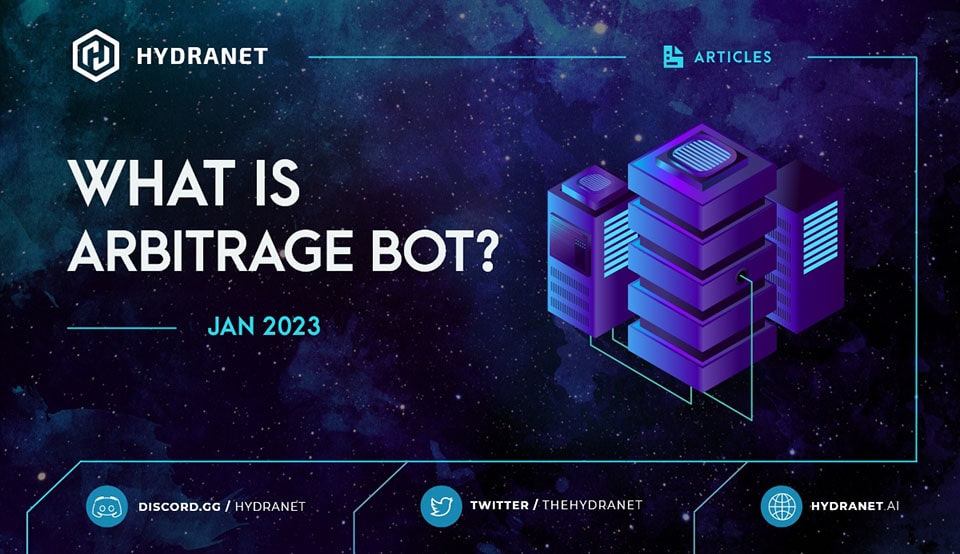Arbitrage is the act of taking advantage of price differences on different platforms. By simultaneously selling and buying the same assets on different platforms, a user can achieve risk free trades while still collecting profits.
The basic principle is; If the same asset has different prices on different exchanges, it is possible to sell the asset at a higher price on one exchange platform and simultaneously buy back the same amount of the same asset for a cheaper price on the other. After the trades, the same amounts will be held (in total) plus some profit. This requires that larger pools of both assets in the trading pair in question are held at both exchanges.
Arbitrage opportunities are usually short lived and small, hence why they are perfect jobs for bots. An arbitrage bot monitors the price on the two separate exchanges and automates the trading actions, making them far more efficient.
How can arbitrage benefit the Hydranet DEX?
Small exchanges with low liquidity (few orders) can suffer volatile prices and quickly get out of sync with bigger exchanges. With an arbitrage bot in place, this effect can be mitigated by effectively mirroring the price of the bigger exchanges.
Arbitrage bots seek to make profit off of price differences. Therefore, they always strive to close the price gap between two exchanges. Since one exchange (usually the CEX) will have a bigger volume and therefore a price that is harder to move, the price on the smaller exchange will naturally gravitate toward the price of the bigger exchange through the arbitrage trades, in a self leveling mechanism.
For example: If the price is higher on the CEX, the bot will continuously sell on the CEX and buy on the DEX, which in turn pushes the price higher until the price gap is closed and there is no more arbitrage opportunity.
In reverse, when the price is lower on the CEX, the bot will sell at the DEX until the price has reached the same level as the CEX.


Leave a Comment